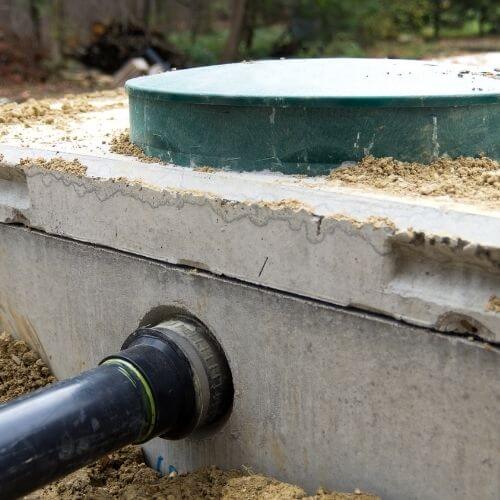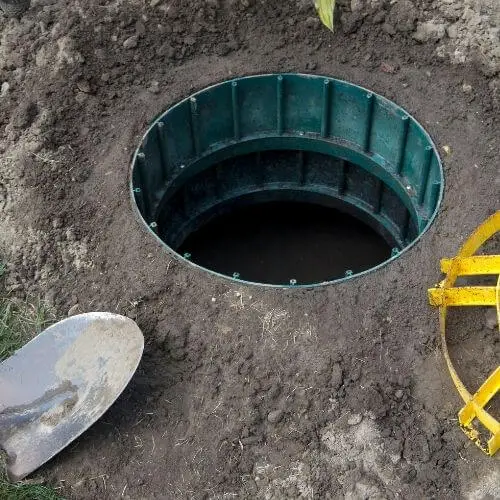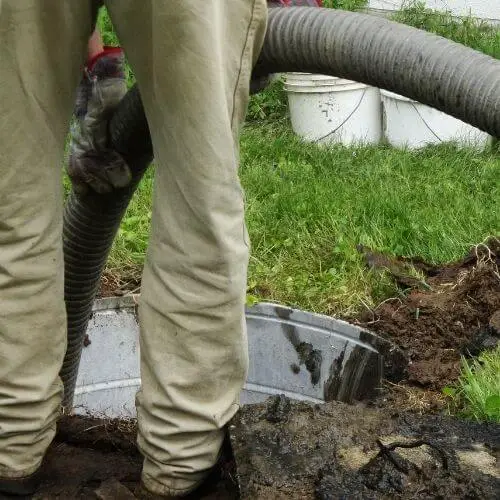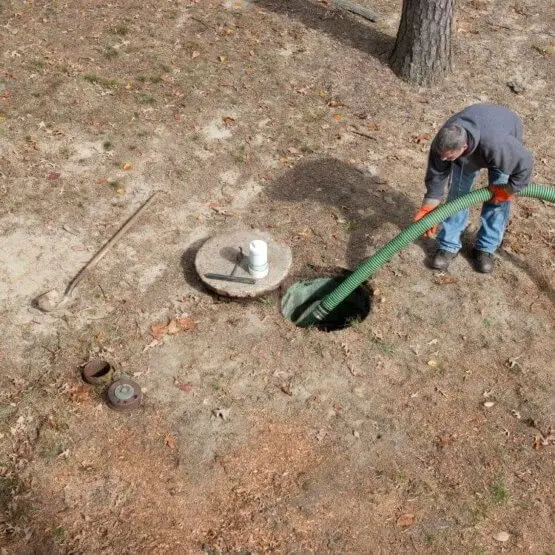When you have a septic system, it is essential to keep it clean. So, how will you recognize those warning signs of a full septic tank?
First of all, follow the “better safe than sorry” logic. For example, if you are moving into a home with a septic system, the best idea would be to inspect it immediately. Find out where your septic tank is located and call the home inspector to take a look. This way, he will tell you when was the last time it was pumped, so you can approximately count the next date for emptying.
In general, it is essential to do routine maintenance since this will lengthen the life of your septic system. Therefore, it would be best to check everything your system has annually, from gravity and sand filter systems to pressure.
Also, it would be a great idea to ask the home inspector to show you where the lid for your tank is. You can always check if your septic unit is full when in doubt.
But then, of course, it is easy to forget about your septic system, and who can blame you for that? After all, we do not want to think about things like wastewater so often. So keep reading, and you will learn how to spot the warning signs of a full septic tank easily.
7 Warning Signs of a Full Septic Tank

When a septic system is broken, wastewater can spill and come back upward. Not only that cause a plumbing problem, but it can be very unhealthy for you and the environment.
To avoid a disaster and call a maintenance specialist on time, here are the signs you should pay attention to:
Bad smell.
One of the most common signs that something is wrong with your septic tank. Usually, people describe it as the smell of rotten eggs coming from the pipes or the toilet bowl. Furthermore, if you go near the septic tank lid and feel a foul odor, it can mean that the tank is full, but the sewage has escaped the tank.
Gurgling sound in your pipes.
If you hear gurgling sounds whenever you run the water in the sink or flush the toilet, it can signify that your tank is full and needs to be pumped out. If that is the only sign you are getting, maybe there is a problem with the airflow in the drain pipe. Or it can mean something is blocking the drain. However, we recommend you call a plumber since he can listen to the gurgle and discover the problem.
Standing water near the septic tank.
Do you see a couple of puddles of standing water close to the drain field? If you haven’t had heavy rains lately, it is probably another warning sign of a full septic tank that needs emptying.
Drains slower than usual.
If your kitchen or bathroom sink and a shower are draining water very slow – it could mean that you have a problem either with the pipes or with your septic system. You could try and unclog the drains first when this is the only warning sign you are getting. Mix a baking soda and vinegar cup and pour it down the drain. Then, add a pot of boiling water. If it isn’t getting better after a couple of attempts, it is best to call professional help.
Toilet doesn’t flush.
If your toilet flow is weak or won’t flush at all, there is a good chance that your tank is full or the pipes are clogged. But, of course, first, check if the flush handle has loosened up or if it is broken.
The grass around your tank is super healthy.
Although it seems like a strange connection, this is one of the first signs your septic system needs emptying. The grass is getting the extra fertilizer from the leaking sewage, so it is probably the right time to open the septic tank.
Sewer backup.
We sincerely hope you are not experiencing sewer backup. However, it is a classic sign telling you to call for help right away since this is one of the worse pieces of evidence of a failing septic system. It is bad for the health of the system and your own, but it can cause some serious damage to your house.
Keep in mind that all of these signs are common when the septic system is full, but there can be some varieties for your tank. Also, two or three symptoms can appear together, but it is better to check your tank right away if you notice only one.
What Should You Do When the Tank is Full?

We went through the classic signs septic system is full, so when you notice you have a problem, what should you do next?
First, you need to call in a professional service. There is a big chance your tank needs emptying. It is best not to do opening yourself since you will have to deal with the sewage, which is toxic and must be discarded in a certain way. Also, there are fines you could pay for not dealing with your sewage correctly.
Professionals will unload the tank in about 45 minutes to two hours. They will dispose of the garbage appropriately. The cost of cleaning and pumping is from $275 to $580, depending on the size of your tank. However, the average price is about $375. [1]
How Often Should You Pump Your Tank?

You probably want to avoid those awful warning signs that send the signals your septic tank is full. So, once you have already emptied it, there are some indicators that you can count on before the next emptying.
As for the frequency of pumping your tank, you could include several factors. The most important ones are:
- The size of your household.
- The size of the septic tank.
- The level of solids in wastewater.
For example, if you have a 1000-gallon tank and four family members – it could mean you need to clean it every 2.5 years. Therefore, it is also essential to include your routine and habits in the figure. For example, if you use your tank for food disposal, throw something not recommended, etc. So to say, it is best to follow your habits and your septic tank.
However, some general guidelines say that your system needs to be pumped every 3 to 5 years. Therefore, if you use it properly and empty it occasionally, you will have a long life-lasting septic system.
Why Is This Important?
You probably already know the way your septic system works: the wastewater goes to the tank. There, it separates into three layers. At the bottom are the solids, water comes in the middle, and the third top layer is the grease.
Bacteria that live in the tank are in charge of turning solids into liquid. And you could also help break down solids in the tank. However, even with that – solids will build up at the bottom of the tank over time.
It comes to the point when solids start holding the capacity of the tank. Eventually, they can reach the pipes and cause a clog (or some of the warning signs mentioned above). That is why it is essential to pump the tank from time to time.
Instead Of Conclusion: Be Proactive

Regular maintenance will help you avoid smelly and expensive septic tank or drain field repairs. If you pump it regularly, septic tanks can last for decades.
So, to make them provide you with reliable sewage treatment, there is a couple of things you could do to prevent it from getting overcrowded:
- Please do not use your septic tank as garbage disposal. It will reduce the effectiveness of your septic system, but it will need to be pumped more often than usual. Also, other, greener options are better for food waste disposal.
- Don’t pour grease down the drain. Oils and fats are the worst enemies of your pipes: sooner or later, they will clog them. A good idea would be to install a grease interceptor between the kitchen sink and the septic tank.
- Similarly, avoid throwing coffee grounds down the drain. It will most likely clump together and clog your pipes.
- Never put feminine products, wet wipes, baby diapers, wipes, condoms, or facial tissues in the toilet. The only safe product for your septic system is toilet paper, preferably the one labeled as septic-safe.
- Furthermore, avoid using thick toilet paper. You want to choose the kind that quickly dissolves in water.
- Don’t put harsh chemicals down the drain. You and the environment should go as green as possible: avoid using concentrated detergents, bleach, and similar products.
- Cigarette butts are also a no-no since they won’t decompose and probably cause clogging. [2]
Several indicators can help you find out if your septic tank is full. However, either the foul smell or the sewer backup, it is best to avoid warning signs and empty your tank regularly.

Michael Davis is a heating & plumbing expert who currently works as independent contractor in SC. He also writes for Plumbertip.
For almost 10 years he worked on various plumbing tasks across South Carolina.


